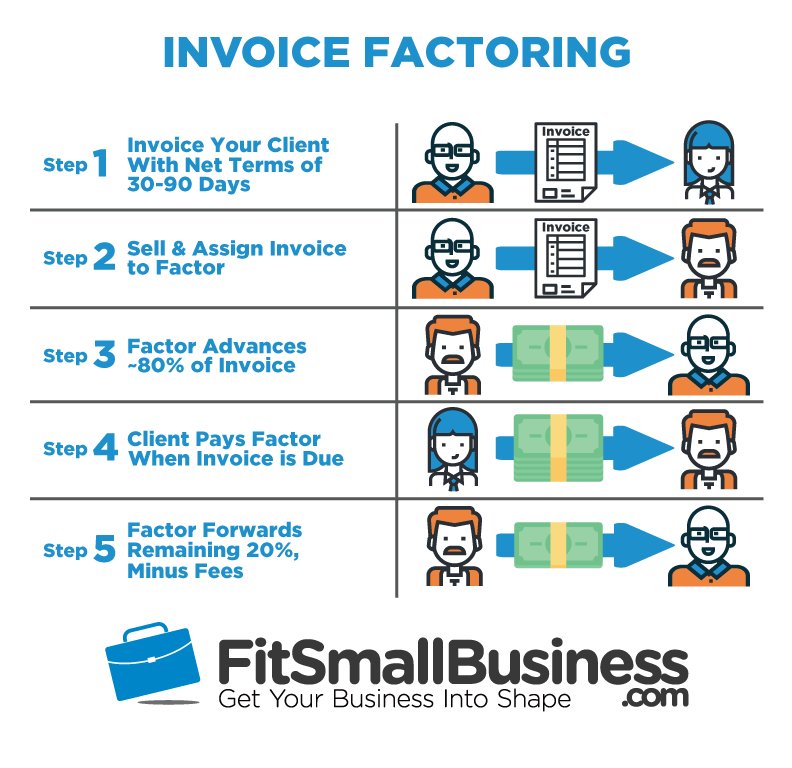

Sometimes, a factor will check into the reliability of a business’ clients beyond face value (e.g., the clients’ creditworthiness, whether they have any liens against them, etc.). If a business owner signs a long-term contract and desires to terminate their invoice factoring agreement, there may be cancellation or termination fees, which will typically run a business a small percentage of their credit line. Many factoring companies charge businesses a (usually monthly) fee to keep their accounts running and open. Typically, with invoice factoring, you can be approved in less. Quick cash: Invoice factoring is a quick way of releasing money when your business needs it the most. If a business produces less than ideal results after a credit check, factors may require that business to commit to submitting a minimum monthly invoicing amount or charge additional fees. Factoring is a flexible financing option to get an instant infusion of cash based on outstanding accounts receivables. An invoice factoring company specialises in managing sales ledgers and credit control, and their accounts receivable management techniques are going to be of a high standard. Increases your buying power by enabling you to take advantage of cash.

Can help you meet your payroll and tax payment obligation.

Can improve your credit rating by giving you cash so you can pay your bills sooner. The fees depend on a variety of factors, such as the creditworthiness of your business and your clients, the number of invoices you plan on submitting for financing, and even the type of industry your business is in.Ī typical factoring fee is, however, between 0.05% and 4%. Factoring turns your invoices into instant operating cash.


 0 kommentar(er)
0 kommentar(er)
